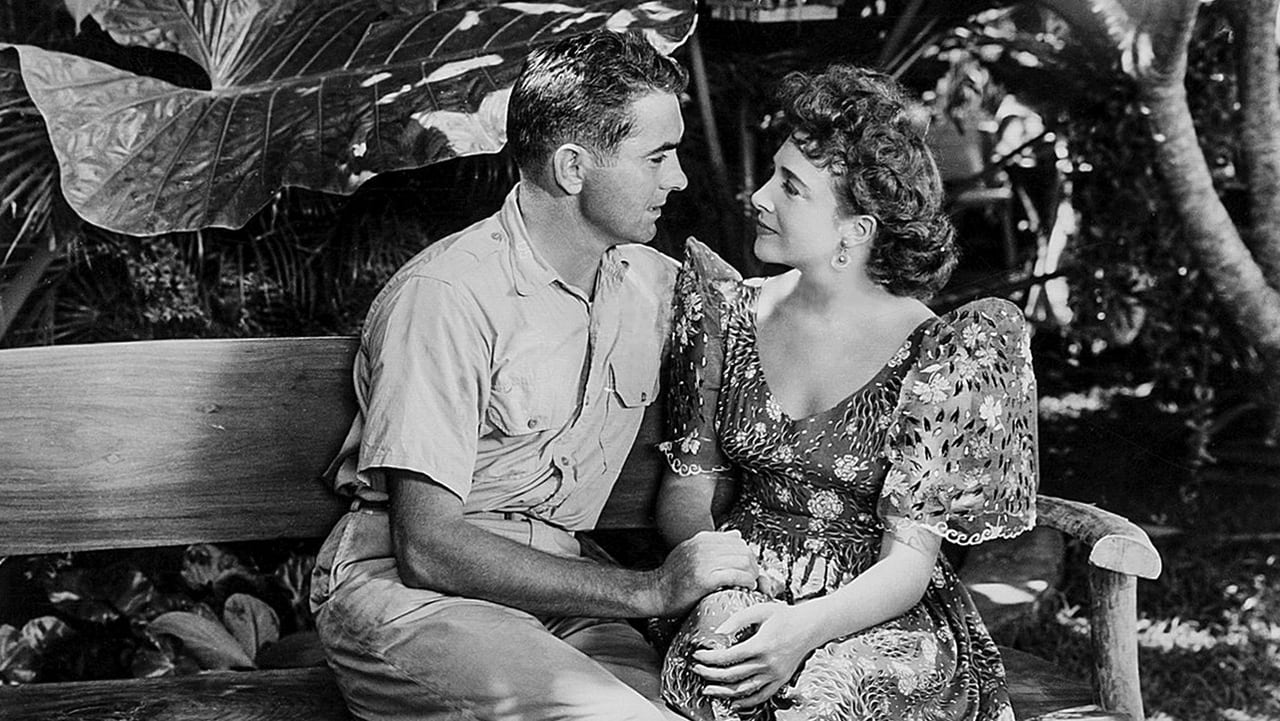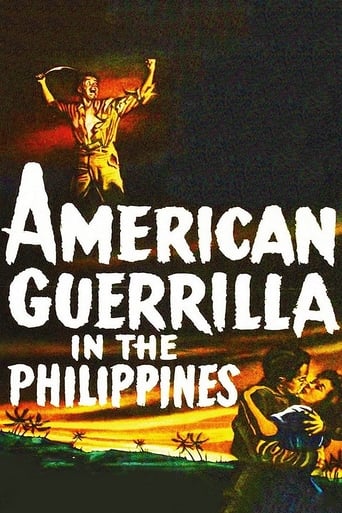

This is a seldom referenced and very overlooked old movie, but Fritz Lang still shows what an amazing filmmaker he is here. The script is good (not great) but the direction and some surprisingly good acting turn this one into a real winner. Definitely worth watching.
... View MoreWhile it seems that the premise of this film was based on actual events in the Philippines, it comes across as a good actioner and little more. The movie is enhanced with location filming and, being only 5 years removed from the end of WWII, many of the people in this film served during that conflict. SPOILER: While the end of the movie is pure Hollywood, the cavalry, in the form of the U.S. Army and General MacArthur, riding to the rescue saved the real band of guerrillas, it makes for a tidy, yet abrupt ending to the movie. END SPOILER. For the poster that said the movie was to get the American public ready for Korea, your history is a bit off. The Korean War started in June of 1950, over 3 months before this movie was released and by the time it came out, we were very much involved; the amphibious landings at Inchon, South Korea came in September of 1950. This was not a propaganda movie per se, it was a look back at a time when Filipinos and Americans fought together to defeat the Japanese.
... View MoreI caught this movie on the Fox Movie Channel last week. A shame that the DVD is not available as this one would be a keeper. If you like WWII era movies this one is a good one. It documents insurgency activity against the Japanese during the war. A rag-tag group of people including some Americans separated from the rest of their detachment lead locals in a courageous and sometimes complex scheme to keep the enemy unaware of their activities.This was an easy movie to get into and one I would add to my collection if available. It is in color as well and features some spectacular shots.
... View MoreNot a bad movie, really. Colorful, exotic locations, educational, some interesting combat scenes. But coming from the director of "Metropolis" and "M"? It reminds me of an anecdote told by the psychologist who wrote "The Three Christs of Ypsilanti." That's a psychiatric hospital in Michigan. Three patients claimed to be Jesus Christ. The psychologist was watching a film with the one named Louie. Adlai Stevenson, then Governor of Illinois, appeared on the screen. "That's me," cried Louie, "I'm Adlai Stevenson." The psychologist replied, "I thought you were Jesus Christ." "I am," said Louie, "I'm Jesus Christ too -- but I've got to make a living."Fritz Lang must have had some similar motive for making this rather routine war film. It has every cliché in the book. The romance thrown into the middle of the muddle. The cavalry riding to the rescue at the last possible moment. The acting of the principals is at par, but some of the bits are played by people who seem to have had no training in inducing a suspension of audience disbelief. The best scene in the film has Tom Ewell (in an uncommonly dramatic part) trying to hide from the Japanese under a rotting log. His bare feet are on an ant hill and soon his skin is crawling with stinging ants while he bites his tongue and prays.The best performance is given by the Japanese officer. He's great. Sinewy, dapper, ruthless, ironic. Speaking to Michelline Presle, who has been aiding the guerrillas -- "You rike Americans with WHITE FACES, like boiled pork." Marvelous line. (That bleached skin, like blue eyes, is an evolutionary anomaly confined to northwestern Europe.) The guy is fascinating to watch physically, in the way that Jack Palance is.Minor error. Ty Power and Tom Ewell are reporting on the position and movements of two Japanese destroyers (actually, they look like Geary-class American ships). Power gives the info on the ships to Ewell next to him, who relays it by phone to a radio operator who encodes and transmits it. But the operator isn't sending information on the location of the ships. He keeps sending the word "news" over and over, interspersed with a couple of letter "b"s. It is not, as I say, a bad movie. It's just done rather by the numbers. A far better job dealing with our defeat in the Phillipines was done by John Ford in "They Were Expendable." This film is worth watching as a description of the very real guerrilla movement that developed in the Islands after that initial defeat.
... View More